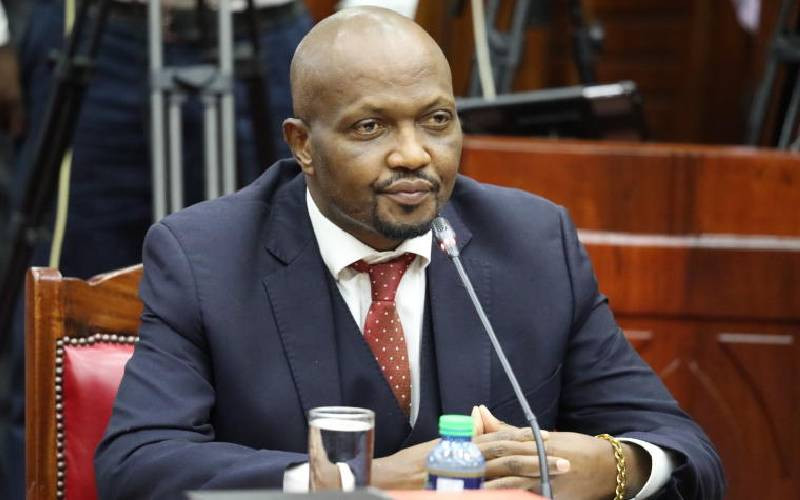×
The Standard e-Paper
Join Thousands Daily

Trade, Investment & Industry CS nominee Moses Kuria. [Elvis Ogina, Standard]
Trade and Investments Cabinet Secretary Moses Kuria is facing backlash for a statement he made rationalizing the importation of Genetically Modified maize, which seemed to suggest that the government was unconcerned about their safety.